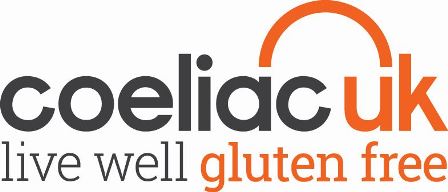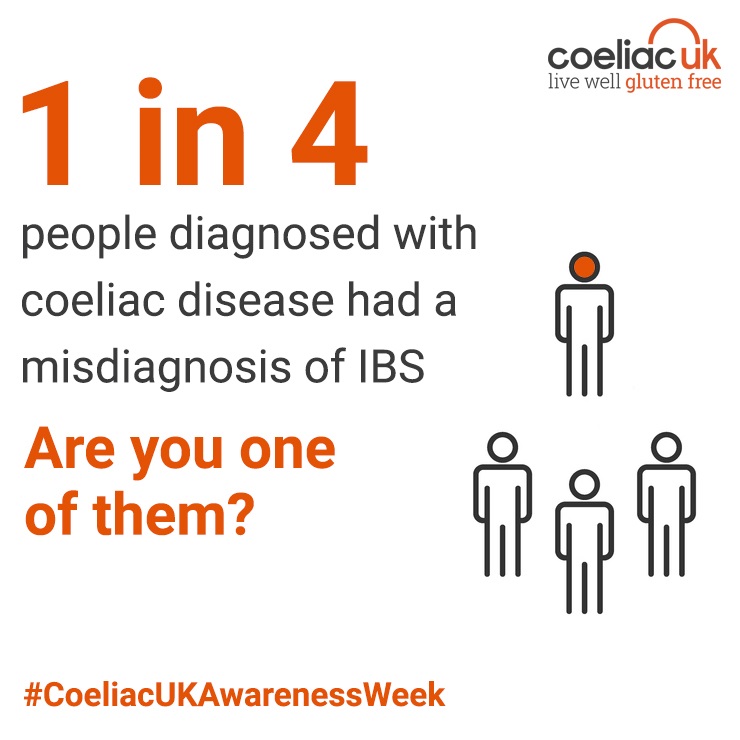Coeliac UK Awareness Week: Restaurant Industry News spoke with the national charity Coeliac UK

| What is coeliac disease? |
Coeliac disease is an autoimmune condition where the body’s immune system attacks its own tissues when you eat gluten. This causes damage to the lining of the gut and means the body can’t properly absorb nutrients from food. Coeliac disease is not an allergy or food intolerance.
| What does Coeliac UK aim to help with and what support does it provide? |
Coeliac UK is the national charity supporting people who need to live without gluten and supports its 65,000 strong membership with information and advice, fundraising, supporting new research developments, and campaigning to improve access, availability and quality of gluten free food. Coeliac UK works across many areas to improve the lives of those with coeliac disease. We work to improve their experience of healthcare, ensure their gluten free diet is easy to manage and drive research, which delivers new solutions to the problems of living with the condition.
We have worked alongside retailers and manufacturers for many years to understand and meet the incredible growth in demand for gluten free products. There are a number of factors influencing this demand, including increased diagnosis rates with around 1200 new members joining every month who depend on gluten free food to manage their condition. As well, half a million people in the UK are still to be diagnosed with coeliac disease and a growing consumer segment are choosing gluten free food for health and lifestyle reasons.
As well as working with manufacturers to certify their food products with our internationally recognised Crossed Grain symbol, we also work with caterers across the UK to safely cater gluten free. Coeliac UK launched a GF accreditation scheme for the catering industry in 2012, with now over 3,000 accredited venues. Catering businesses can benefit significantly as research shows people with coeliac disease and the family and friends they eat out with are worth a potential £100 million a year to venues willing to provide dishes labelled gluten free. For businesses that have already taken up this option the impact on their bottom line is overwhelmingly positive. With this increasing catering opportunity comes an increased demand for good quality, easy to use products like gluten free breads, rolls, wraps and cakes for use by the food service industry.
| How similar are IBS and coeliac disease symptoms? |
Irritable bowel syndrome (IBS) is a common misdiagnosis in people later diagnosed with coeliac disease. Although coeliac disease affects 1 in every 100 people, in the UK only 30% of these patients are diagnosed, while 1 in 4 have first been treated for IBS. Symptoms of IBS are often similar to those of coeliac disease and National Institute of Health and Care Excellence (NICE) guidelines recommend that coeliac disease is ruled out before diagnosing with IBS. Symptoms of IBS include abdominal pain, bloating and change in bowel habits all of which are also symptoms of undiagnosed coeliac disease.
| Do you think there has been an increase in people becoming diagnosed with coeliac disease over the past few years? |
Recent research shows diagnosis of coeliac disease, which affects 1 in 100 people, has risen in the UK from 24% in 2011 to 30% in 2015. The research, commissioned by Coeliac UK, from the University of Nottingham, searched UK patient records up to and including 2015 for clinical diagnoses of coeliac disease and dermatitis herpetiformis (the skin manifestation of coeliac disease). The research showed that although the number diagnosed rose by a quarter in four years (2011-2015), alarmingly the rate of diagnosis was slowing significantly. Around half a million people in the UK are still living with undiagnosed coeliac disease. It also highlighted that 1 in 4 adults diagnosed with coeliac disease had previously been misdiagnosed with IBS, the same percentage that had been reported in research from 2013. It still takes on average 13 years from onset of symptoms for a person to be diagnosed with coeliac disease. The NICE guidelines for coeliac disease and IBS recommend that anyone presenting with IBS symptoms should be screened first for coeliac disease.
| Recently, there seems to be much more discussion surrounding coeliac disease, what is the difference between a gluten intolerance or gluten sensitivity and coeliac disease? |
Some people have gut symptoms when eating foods with ingredients containing gluten, i.e. wheat, barley and rye, even if they don’t have coeliac disease. This is sometimes referred to as non coeliac gluten sensitivity.
The symptoms of non coeliac gluten sensitivity may be similar to those experienced by many people with coeliac disease, but it is not clear how the immune system might be involved and there does not appear to be damage to the lining of the gut.
Coeliac disease is a well defined, autoimmune condition where the body’s immune system attacks itself when gluten is eaten. This causes damage to the lining of the gut and means that the body cannot properly absorb nutrients from food. Coeliac disease is not a food allergy or intolerance.
Wheat allergy is a reaction to proteins found in wheat, triggered by the immune system and usually occurs within seconds or minutes of eating.
Non coeliac gluten sensitivity is when symptoms similar to coeliac disease are experienced, but there are no associated antibodies and no damage to the lining of the gut.
The exact role of the immune system in non coeliac gluten sensitivity is unclear and further research is needed. There are no specific diagnostic tests for non coeliac gluten sensitivity.
| Is it important to continually raise awareness? |
There are still half a million people across the UK who have undiagnosed coeliac disease. As many as 1 in 4 people with coeliac disease were previously misdiagnosed with IBS as many of the symptoms for IBS such as bloating, stomach pains or cramps, diarrhoea or constipation and feeling exhausted are the same symptoms of undiagnosed coeliac disease. With only 3% of British adults aware that the symptoms of IBS are also common symptoms of coeliac disease it is important to raise awareness and urge anyone with IBS to ask their GP for a blood test for coeliac disease.
| What are some of the symptoms? |
The symptoms of coeliac disease vary from person to person and can range from very mild to severe. Symptoms of eating gluten, or being ‘glutened’, include diarrhoea, stomach pains and lethargy. The reaction is not the same as an allergic reaction and does not cause anaphylactic shock. The symptoms may last from a few hours to a few days.
Coeliac disease is known as a ‘multi system’ disorder- symptoms can affect any area of the body. Possible symptoms may include:
- severe diarrhoea, excessive wind and/or constipation
- persistent or unexplained gastrointestinal symptoms, such as nausea and vomiting
- recurrent stomach pain, cramping or bloating
- iron, vitamin B12 or folic acid deficiency
- anaemia
- tiredness
- sudden or unexpected weight loss (but not in all cases)
- recurrent mouth ulcers
- skin rash (dermatitis herpetiformis)
- Unexplained subfertility or repeated miscarriages
- Faltering growth in children
- neurological (nerve) problems such as ataxia (loss of coordination, poor balance) and peripheral neuropathy (numbness and tingling in the hands and feet)
| What is your advice for anyone who may have some of these symptoms? |
If you are suffering from any of these symptoms we would advise you to go and visit your GP and discuss testing. We have developed a self assessment test to make it easier to take that first step to diagnosis (https://isitcoeliacdisease.org.uk/). If you think you may have coeliac disease, it is essential to continue eating gluten until your doctor makes a diagnosis.
| Are there any long term health impacts if a gluten free diet isn’t followed? |
When someone with coeliac disease eats gluten their immune system reacts by damaging the lining of the small intestine. In a healthy small intestine, there are small, finger like projections (villi) that allow the body to absorb nutrients from food into the blood. In untreated coeliac disease, villi become inflamed and flattened. In some cases, they can even disappear. This is called ‘villous atrophy’. When the gut is damaged in this way, it means the body can’t absorb all the nutrients from food properly. This damage causes many of the symptoms of coeliac disease and adds to the health risks and complications. Long term health impacts include anaemia, osteoporosis and in very rare cases, lymphoma of the small bowel
| Is a gluten free diet the only solution to coeliac disease, what other methods can help ease symptoms? |
At the moment there is no cure for coeliac disease and the only treatment is a strict gluten free diet for life. Once on a gluten free diet, symptoms should improve but the time it takes for the gut to heal varies from person to person. Coeliac UK has lots of information on how to follow a gluten free diet, including advice about shopping and reading food labels, cooking and baking, eating out and travelling.



Leave a comment